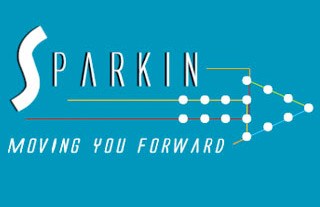On Getting Your Ideal Next Job
– You can never outrun the frying pan! If things don’t work out where you are, stop, reflect, conceive a plan and then have a concrete reasoning for the next job you accept.
– If you don’t know with some confidence why you should better still will succeed, don’t pursue the job.
– Perhaps the culture gives you pause for thought or your potential new boss? Key is to have mandatory things aspects of the job you’re considering , such as an employer that values the role of strategy! Or perhaps a client known for buying great work, or a place with high quality creative output. Know what’s key for you and where the trade-offs are.
– Meet those people the interviewing agency/consultancy want you to meet ; Also, ask to meet anyone else you feel that our key to your success and know having met them you are making a truly informed decision.
– The clients you will be working with, the personalities of all key stakeholders, the hidden skeletons relating to the relationship with the client. You can never ask enough questions, so ask away. And even when you ask all the questions, you will never have perfect information as things constantly change, but you should still ask away!
Accept change as an inevitable factor and that it is your choice to accept and embrace it or to try and obstruct it. If the latter approach, ensure your stance is on the side of current if not future revenue.
2018 VCU Parkin ‘Empathy’ Award Winner
The ability to understand someone else’s perspective doesn’t necessarily make you the smartest or the nicest person in the room (although empathetic souls are usually high on both counts) but empathy is an increasingly important skill to have particularly for a strategic planner, but actually for anyone!
A huge congratulations to Chorong Kim, this years VCU winner of the Parkin ‘Empathy Award,’ which goes to the most empathetic MSc Branding graduate. The award is judged by the students on the course as well as the strategists that teach the course; (Not the school; Not SPARKIN)
It was also a great pleasure to have lunch with Chorong and two other graduates, who always inspire me.
#VCUParkinPrizeWinner #Empathy #LifeSkills #EmotionalIntelligence #UberTeamPlayer #ParticipantsDecide #DerekParkinAward #Winner #Passionate #CareerOptimisation #Advertising #SparkinCoaching #Careers #KnowYourAudience #ConnectWithPeople #BetterLife #SparkinSearch #CreativeStrategy #AccountPlanning #StrategicRelationships #CoreSkills #Diversity #Inclusive
Why Personal Branding Is Key For You
Optimizing career opportunities –
What is a brand if not something that ‘solves a problem’ you have or in some way helps you to take a step toward the life that you want? Above all else the key words we all want to experience with any product or service we acquire are, ‘rely on.’ And, great brands are the most reliable and have great reputations.
In the world of entertainment, you can rely on the ‘The Rolling Stones’ to rock your world. Similarly in the sporting world, Roger Federer can be relied on to provide a tennis masterclass. In turn, ‘The Stones’ and ‘Federer’s reputations are leveraged by food, cosmetics, apparel and beverage companies, amongst others, to amplify the reputations of those company’s products and services.
Despite people obviously acting as brands, some in the advertising world are queasy about the idea of ordinary individuals ‘acting’ to promote themselves believing it to be borderline narcissism. Business and brands products don’t rely on word of mouth and actively shout, ‘look what we have,’ ‘consider us,’ ‘we can help you.’ We don’t think of this as narcissistic as those entities are providing something that might have value to others. And this is key. Making others aware of a skill you have that can help them, is not seeking attention for attentions sake, which is narcisscim.
Key Considerations for You Thinking Like a Brand
1. Seek Greater Recognition – Just because people (or products or services) are not famous for doing something well, doesn’t mean they shouldn’t act with the intent of achieving greater recognition. That’s simply good business!
2. Great Work Alone Is Not Enough – Great brands deliver compelling solutions but they don’t rely purely on third party recommendation – Doing great work should speak for itself. In theory great products or services should dominate; Word of mouth should be enough but smart companies don’t rely on it, and nor should you.
3. Tell Your Story – Long term career management is today atypical – As companies become progressively more transactional in their operations, in their hiring and firing of talent, so they become less focused on the development of your career. Unless you are fortunate to have a great boss or engaged HR team, it becomes imperative, for you to tell your story/ (as well as doing a great job)
4. Provide a differentiated offering – Telling a story is important, but telling one that showcases your ’adding value’ is key! Highlight what differentiates your expertise. Do something brilliantly and ideally something creative and unique.
5. Be consistent – In all matters relating to the delivery, aim to provide a consistency of service or product quality, whether providing the service as an employee or a business.
6. Non- believers of the ‘Personal Brand.’ – If you don’t believe you might benefit from thinking and building your brand, think instead about your reputation with others.
Reputation Management
A great reputation with others might be the difference between you getting or not getting an amazing career opportunity you’ve always wanted, so it’s key that you have a good one!
1 Understand the reputation you have and why you have it – Do you have a great reputation only because of what you do and those that have experienced it? Or,
2. Is your reputation stellar because of third party recommendation, because of those that have been told what you’ve done whilst not having experienced your product or service directly?
3. Shock News/Double whammy – Doing a great job combined with effective promotion is the double whammy that leads to an enhanced reputation. Companies build brands and businesses by doing both!
4. Great reputations lead to more work and more opportunities – If you can handle the fact that you have a reputation to manage, you may well be close to navigating the short stroll to acting like a brand.
For more reading on this subject check out the latest ‘Narrate’ – https://bit.ly/2NdQwTh
Personal Branding – Why Your Livelihood Depends On It
So you don’t believe in personal branding? Or you’re too busy to focus on it? Or, you believe your work speaks for itself? Or, you believe branding is for people that have their own business? Or you believe the whole concept is a bit narcissistic?
The truth is, it’s always been more important to do a great job versus talking about doing one. The quality of your work, your contribution and the consistency and impact it has, has always been key. So an emphasis on doing great work makes sense.
What’s changed is the time that people with the dollars have to recognise your work and in so doing, you’ve become more vulnerable; You’re doing a great job really is no longer enough. Marketing your expertise/showcasing your value has become an essential part of others ‘recognising’ the problems you solve.
Seeking attention without having a story to tell is narcissistic. Making others aware of a genuine problem solving ability isn’t. And given the ever transational nature of the agency world, we are all effectively becoming free agents if not stand alone businesses, that need to promote the value we can deliver.
That said, I speak with many folks that don’t like promotion, let alone self promotion. What do you think?
- Personal Branding Strategy. A Roadmap for Professionals.
- Does Personal Branding Matter?
- How to Build Your Personal Brand.
- Ten Tips For Building a Strong Personal Brand
- Personal Versus Corporate Branding. Is it Me or We?
- Six Easy Ways to Build a Personal Brand
- Personal Branding Is Not What You Think It Is
- Seven Personal Brand Trends in 2018
Being Positive About the Future of Advertising
Does advertising have a bright future? If we’re talking about doing things the way they have always been done without changes, then yes, the future is bleak. And where change isn’t happening fast, that’s because the agency still makes enough money doing things in the same old way.
If however we’re talking about ‘back to the future’ on some level, where agencies focus more on investing in talent and culture, things are a little less transactional and about hiring and firing at will, things can be good.
There are some agencies that have found more balance between short term profit and creating a great place to work. These are also places that have crossed the rubicon and evolved a new way to make money, one typically either more integrated in the focus of the outputs or have a brand experience focus in mind, typically the same thing.
So what degree of confidence should you have in your current role?
Some of the questions that will clarify this for you. What are the outputs of your agency? What does it offer and how well does it deliver on the promise? And, how committed it is to a short-term P&L versus investing in the medium and longer term? Is it an agency more focused on relationships and partnerships than making the next quarters’ numbers? Of course whatever the place you work, how positive you can be does depend hugely on the value you provide.
The Market
Companies/In-House Agencies – There are some solid examples where in-house works but in many more cases it hasn’t in large part because the move to developing in-house agencies has been driven by procurement. The reason why most companies work with agencies is because they are seeking creative thinking borne of creative cultures. Simply bringing creative talent client-side does not in itself make for a create environment and so agencies will still be needed.
Consultancies – Perceived as a short-term threat to agencies, they have compelled the agency business to become more business focused. Even without consultancies, the emergence of digital channels created the transparency and immediacy of results for clients which called for a transformation of the agency business.
Agency Leadership/Quality of Thinking – The reason why the agency business hasn’t innovated is not because there isn’t the strategic thinking to know what needs to be done; It’s not due to a lack of strategic or business savvy. It’s actually because the agency business still makes a lot of money, particularly the holding companies, that don’t want still very profitably run agencies to change, even if their focus is one or a few channels. (This hasn’t been without huge impact on employee salaries and job security). The good news is, the business does have the quality of people needed to successfully navigate the business forward. It’s the business model that’s the problem.
Creativity Rules – There will continue to be huge uncertainty over the next few years as agencies adjust. That said, there is a greater need than ever to find creative ways to get people engaged with products/services. New integrated marketing agencies will and are appearing. Ones that are as much about targeting algorithms as they are at impacting consumer actions. But above all else creative thinking will remain key.
Why I’m Optimistic?
Consumers – Are not going away. People still wish to be made aware of new products and services; There will always be a need for storytelling, the essence of great communications; And creative engagement, whatever the channel (pre/at/post sale) is as much about the future as it is mobile.
How Well Positioned Are You Where You Currently Work?
Your Organization – If it’s an integrated agency, you are much better positioned than if it’s not. Conversely if there is a focus on one or more channels, pick a leader in the field.
Your Expertise – If you are an effective strategist or creative, great at understanding consumers, great at building business, you should be good.
Timeframe – In the short term, whatever you do there will be uncertainty as even if you do a great job, and even if you are part of an integrated organization, it in turn is part of an industry and culture experiencing seismic change.
Personal Growth – If you are someone that welcomes variety, constant learning and new challenges, you are more likely to successfully navigate forward. If you don’t know what skills you should develop/what makes you most marketable, contact me and I will try and help.













